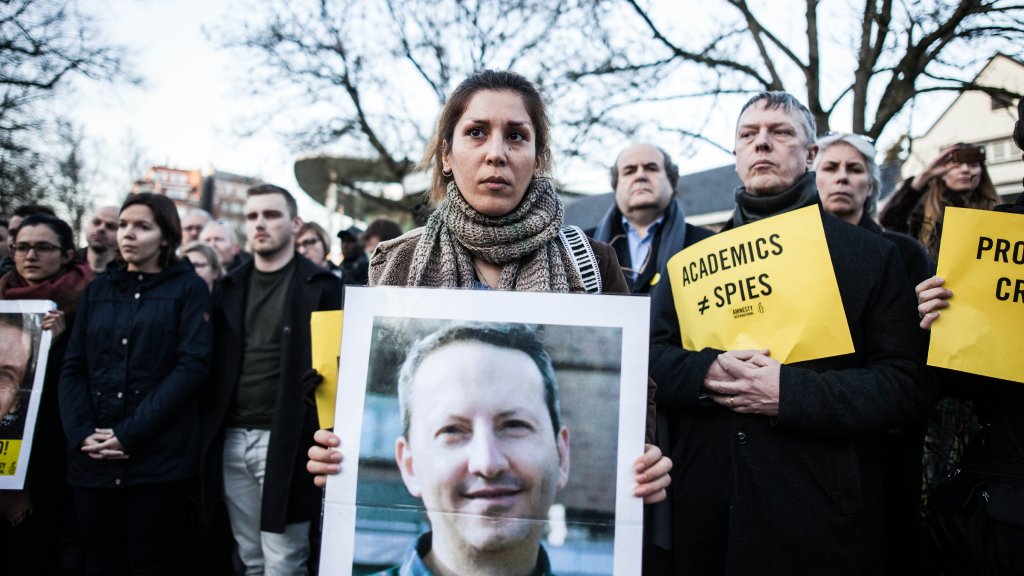Ahmadreza Djalali (49), the guest lecturer at the Brussels VUB University who was sentenced to death in Iran in 2017, will reportedly be executed by 21 May at the latest, according to the Iranian ISNA news agency.
Djalali, an Iranian-Swedish scientist and guest lecturer at the VUB, has been imprisoned in Iran for more than five years. During a working visit to the country in April 2016, he was arrested and charged with espionage.
At the end of October 2017, he was sentenced to death after what human rights experts called an unfair trial. According to Amnesty International, Djajali was forced to confession under torture and spent the first three months of his detention in solitary confinement. His lawyer was not allowed to visit him until seven months after his arrest.
Currently, Djalali is said to be in very poor health.
A political pawn?
The announcement came shortly after the trial against Hamid Noury started in Sweden, where he was arrested in 2019. Noury is a former Iranian assistant prosecutor accused of being a key figure in the mass executions of Iranian political prisoners in 1988, in which 30,000 Iranians were massacred.
In 2018, Sweden granted citizenship to Djalali as he was a resident in the country and taught at the Karolinska Institute of Medicine in Stockholm. It is a possibility that Iran's announcement about the execution is meant to pressure Sweden to drop the charges against Noury.
Related News
- VUB guest professor Djalali moved out of solitary, says Amnesty
- Brussels universities call for government action over lecturer jailed in Iran
- Djalali case: Iran floats idea of prisoner exchange
In the meantime, Djalali was imprisoned in Evin (in the capital, Tehran), where he was isolated, normally a precursor to execution. Not long after, it was announced he was being moved from Evin prison to Rajaj Shar prison in Karaj, where executions are carried out.
Shortly afterwards, his lawyer in Iran received a message from the prison that the execution would take place within a week. However, the move was suspended by a judge, ostensibly to allow him one more contact with his family.
At the time, a trial against an Iranian terror cell was also taking place in Belgium, involving an Iranian diplomat named Assadollah Assadi, who was accused of being involved in a plot to blow up a meeting of Iranian dissidents near Paris. Experts thought it likely that the Iranian authorities were trying to pressure the Belgian ones into making some concession in the Assadi case.
However, a storm of protest ensued and the planned execution of Djalali ultimately fell through. Since then, Iran has tried to exchange Djalali for the terror convicts in Belgium, something the Belgian authorities have explicitly refused.
As Djalali is married to a Swedish woman and has obtained Swedish nationality, the government in Stockholm has also been making efforts to secure his release, alongside then-Foreign Minister Sophie Wilmès, who contacted her Iranian counterpart at the time of the impending execution.
An Amnesty International petition to demand his release has already been signed more than 132,000 times in Belgium.

